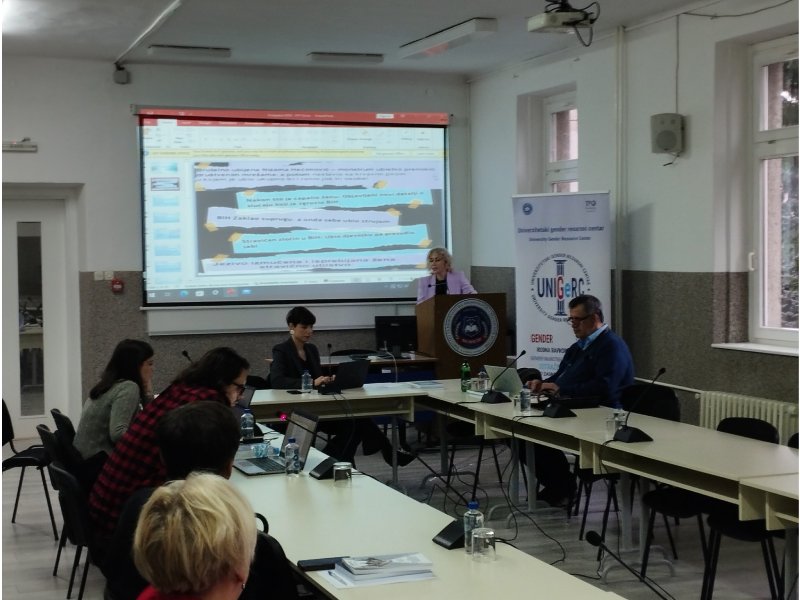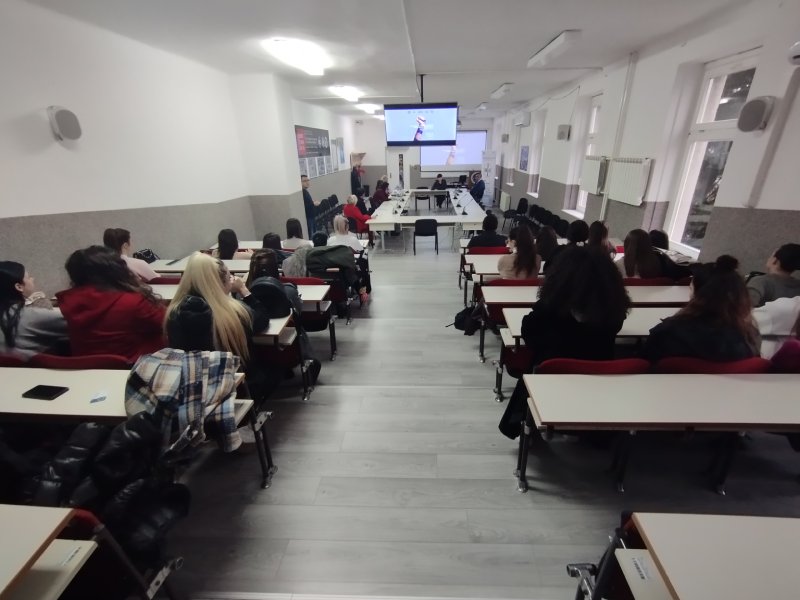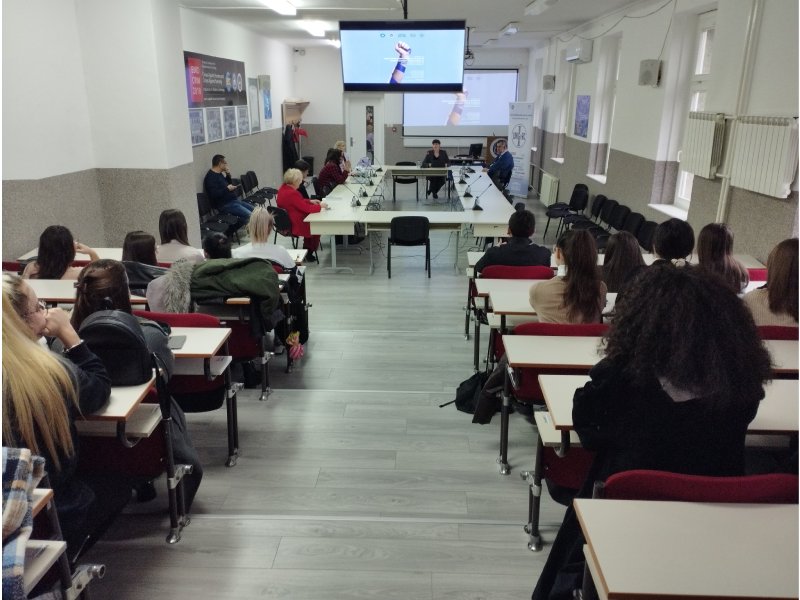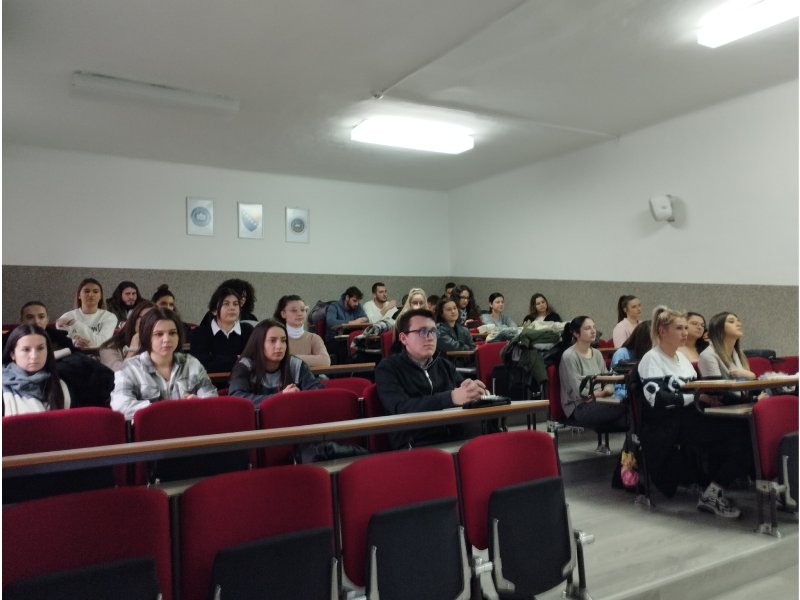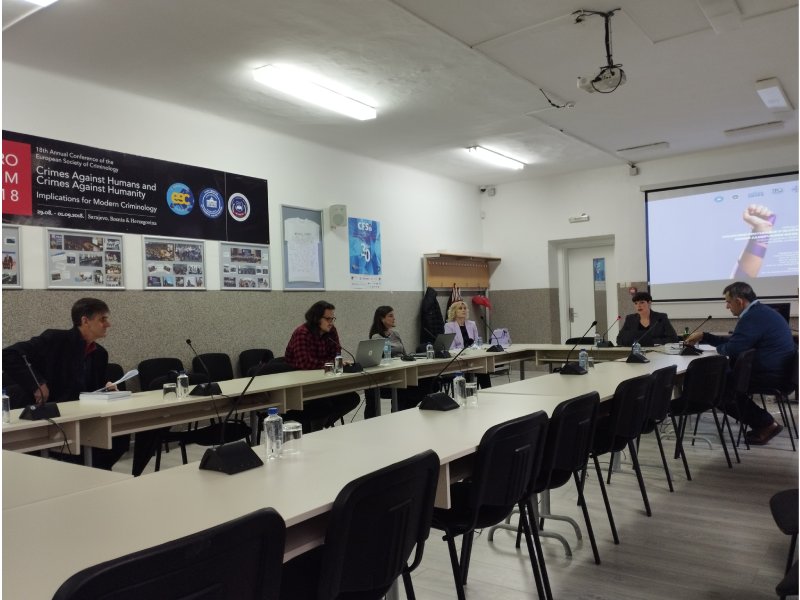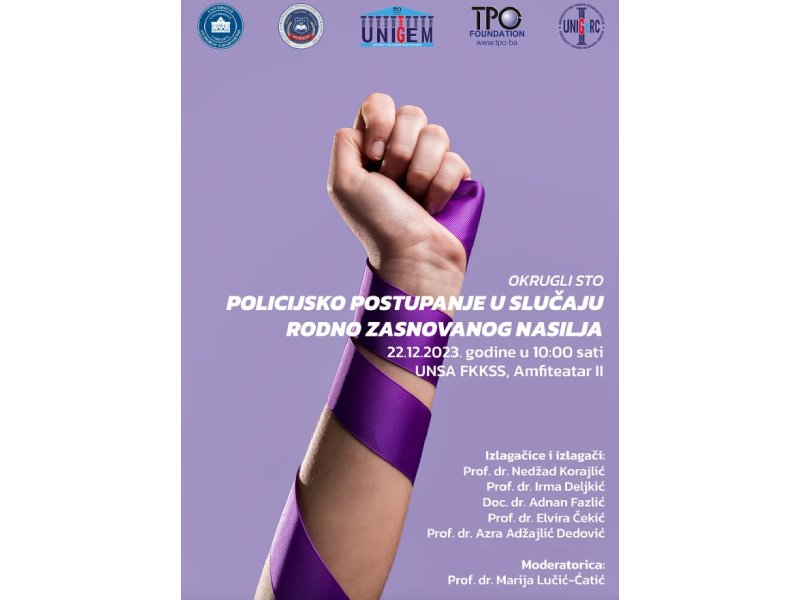On Friday, December 22, 2023, as part of the UNIGEM project and the 16 Days of Activism Campaign, the Faculty of Criminology, Criminology and Security Studies (FKKSS) of the University of Sarajevo (UNSA) held a Round Table on the topic ‘Police action in cases of gender-based violence’.
The participants were: Prof. Dr Nedžad Korajlić, Prof. Dr Irma Deljkić, Prof. Dr Adnan Fazlić, Prof. Dr Elvira Čekić and Prof. Dr Azra Adžajlić Dedović.
On this occasion, it was pointed out that numerous femicides took place in Bosnia and Herzegovina during 2023, i.e. in May in Tuzla, in August in Gradačac and Živinice, in September in Zavidovići, in November in Sarajevo. However, even before these cases, femicide was a problem in Bosnia and Herzegovina, but it was not talked about enough and was not dealt with adequately.
When we look at the data of the Agency for Statistics of Bosnia and Herzegovina in the period from 2016 to 2022, we see that 76 women died of violent death, which can be considered alarming and requires an urgent reaction from all relevant institutions. One of these institutions is definitely the police agencies, whose behavior was discussed at this Round Table.
Considering that gender-based violence is one form of crime that has long-term individual, social, and security consequences, it is necessary to ensure a coordinated and unified response of all police officers in these cases. Adequate response to these forms of violence, of course, requires investment in the capacities of all institutions that are in the chain of normal social control, that is, those that work to prevent and suppress them, with an emphasis on the police, whose immediate or efficient response is in direct correlation with protection of life and physical integrity of victims of violence.
The police, as a segment of authorized officials, should act promptly upon any knowledge of any violence, without thinking ‘maybe it’s not like that’. It can always happen that it is extremely complex violence, so analyses showed that people who were murdered, prior to being killed were often victims of other forms of violence (physical, psychological, mental or some other).
It is necessary to identify a person as a bully in due time, i.e. it is necessary to save on time a person who is a victim. Also, it is clear that women are not the only victims in these situations, there are also other victims, i.e. children and complete families, and then also neighbours and fellow citizens, who experience that violence indirectly. For example, regardless of the fact that we are not from Gradačac, we experienced the crime that happened there as if it was happening right next to us.
